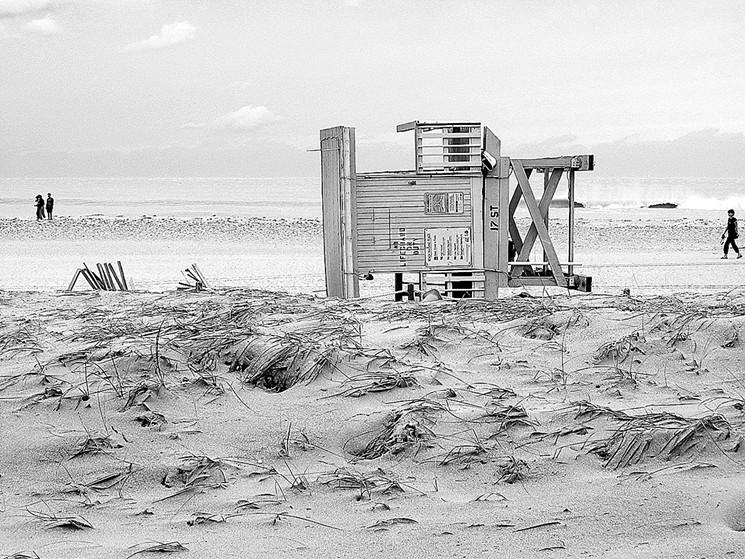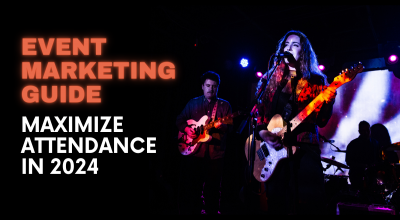It's been 11 years since a major hurricane hit Miami, the longest streak in South Florida history. Those who lived through the devastation of Hurricane Andrew haven't forgotten how to prepare for a tropical cyclone. But Florida has added millions of new residents since 1992 — and even since 2005, when Wilma hit.
The National Hurricane Center's latest predictions say Hurricane Matthew, a Category 4 storm with 140 mph winds, is still a major threat to Florida's Atlantic coast.
Confused about how to prepare? Here are some tips to follow if things go south, both literally and figuratively.

1. Buy some damn supplies. Especially water.
This is pretty much the most obvious advice we can give: Make sure you have food and water. Stock up on nonperishables in case the power goes out — canned veggies, beans, tuna, and chicken, plus granola bars. Likewise, it's well within reason that a major storm could knock out your water supply, so be sure to buy a few gallons of water. The Federal Emergency Management Agency (FEMA) recommends buying one gallon of water per person per day. (Also helpful: Instant and/or bottles of iced coffee and tea. Also: booze if you're into it, thought FEMA doesn't exactly sanction getting drunk during a storm that could kill you.)
There are some smaller tricks too: Buy a bag or two of ice to throw into your freezer. If the power goes out, the ice will keep your food temporarily cold for a few hours as a stopgap.
Be sure to have essential nonfood items such as duct tape, batteries, a portable radio, flashlights, a cell-phone charger, soap, toothpaste, paper towels, toilet paper, tampons, and the like. You might also need bleach or iodine if government officials say you need to disinfect your water. A first-aid kit also isn't a bad purchase.
If you have the cash and it looks like the storm might take a turn for the worse, you could consider investing in a portable power generator or some boards for your windows. Definitely swing by a pharmacy to make sure you have all the medications you need, and run by an ATM for some cash.
You might be tempted to buy candles, but multiple government agencies warn that filling your home with candles during a power outage can be dangerous — flying debris or wind could easily knock a candle over and burn your home down.
And don't forget pet supplies if you need them.
2. Figure out if you're in a flood zone or evacuation area.
Despite a well-deserved reputation for general incompetence, Miami-Dade County officials actually know what they're doing when it comes to hurricanes. The county has an easy-to-read flood zone map posted online. While mainland Miami residents who don't live near bodies of water will likely be OK, pretty much all of Miami Beach sits in a flood zone. Be prepared for surges and swells. Here's a handy brochure about what the flood zones mean. Likewise, the county has partnered with Florida International University to develop an online storm-surge simulator.
Likewise, you should check to see (A) if you live in an evacuation zone and, (B) if so, where you'll need to go. (All of the county's evacuation sites are public schools.) If you don't own a car, the county provides wheelchair-accessible buses at multiple locations throughout the area. If you're here as a tourist, the county might evacuate you before the rest of the city.
3. Prepare your home.
Fill your bathtub. In the event that you lose access to water, you'll be able to use this for washing up and other various nondrinking needs. Likewise, fill a few pots, pans, or jugs with water too.
You'll then want to prepare the rest of your home. Historically, this meant duct-taping your windows to prevent them from splintering, but hurricane experts now warn residents not to tape windows at all because the tape won't prevent glass from shattering and could actually create larger, more dangerous shards that can kill you. If the eye of the storm is heading toward you, you might want to consider boarding up your windows instead. FEMA suggests using 5/8-inch marine plywood. "Tape does not prevent windows from breaking," the agency warns.
Also, don't crack open your windows to "equalize the pressure" during the storm, and don't brace yourself against any doors or windows if they begin to buckle in the wind. Both are incorrect urban legends that will either break your windows or get you hurt.
If you own a car and live in a flood zone, figure out where else to park it. Try to dispose of any small trash you have and, if possible, schedule a bulk-trashpickup to prevent your garbage from turning into flying debris. Trim any plants or trees that could fly off the ground and hurt someone.
If you own outdoor items such as lawn chairs or a grill, bring them inside or tie them down.
You also might want to assemble a "go bag" — containing cash, keys, water, medications, snacks, and important documents — in case things go really bad in a hurry.
4. Optimize your smartphone to keep you safe.
This will be South Florida's first major hurricane during the smartphone era. (Wilma hit in 2005, and the iPhone didn't debut until 2007.) This is a good thing: You can now track weather maps from your phone, get push notifications from government organizations, and keep tabs on your loved ones. You can also burn your battery while SnapChatting the storm, but that is a truly awful waste of phone power.
Pretty much every phone has a weather app, but you might want to download a hurricane-tracking app from the Apple or Android app store. (There are hundreds of them, and many are run by local TV meteorologists. If you're willing to spend $2.99, Hurricane Pro is comprehensive.) Download the FEMA app and turn on push notifications to get emergency alerts. The American Red Cross also has a hurricane-specific app that allows you to receive town-specific notifications and even monitor whether your loved ones in other areas are OK.
As the storm approaches, make sure that your cell phone is charged and that you aren't burning battery life for unnecessary things like Pokémon Go. If you have backup chargers, make sure those are charged too.
5. Hang out. (Safely.)
There isn't much to do once the storm hits. But stay away from doors and windows if you can. The safest place you can be is in your bathroom — if a window breaks or the roof gets ripped off your home, head into the bathroom. If you're in a condo building, the stairwell is your safest bet. Again: If it looks like your doors or windows are about to break, do not brace yourself against them. You'll likely either become a flying projectile or get shredded by broken glass.

Bonus: Donate to help the Haiti relief effort.
Hurricane Matthew already flooded and leveled portions of Haiti today. The island nation has been battered by a near-constant stream of natural disasters for the past few decades. Now that Matthew has struck, Haiti needs the rest of the world's help again. The City of Miami is collecting supplies at city fire stations for those who want to help.




.png)
.jpg)

